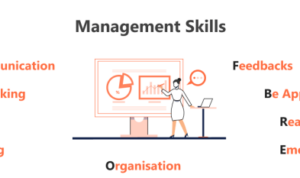Business networking opens doors to endless opportunities in the professional realm, connecting individuals and companies for mutual growth and success. From traditional events to online platforms, the art of networking is essential for thriving in today’s competitive business landscape.
As we delve deeper into the nuances of business networking, let’s explore its various facets and uncover the key strategies for building fruitful connections in the corporate world.
Definition of Business Networking

Business networking refers to the process of building and maintaining relationships with other professionals for the purpose of mutual benefit. It is a crucial aspect of the professional world as it allows individuals and companies to expand their contacts, gain new opportunities, and stay updated on industry trends.
Importance of Business Networking
- Networking helps in creating opportunities for career growth and development.
- It allows individuals to exchange ideas, information, and resources with others in the same field.
- Building a strong network can lead to potential partnerships, collaborations, and business referrals.
- Networking events provide a platform to showcase skills, expertise, and establish credibility within the industry.
Tips for Effective Business Networking
- Attend industry conferences, seminars, and networking events to meet new people and expand your network.
- Be genuine and authentic in your interactions, showing interest in others and their work.
- Follow up with contacts after networking events through emails or LinkedIn to maintain the connection.
- Offer help and support to your network when needed, as networking is a two-way street.
Types of Business Networking Events
Networking events are crucial for building connections and growing your business. There are various types of business networking events that offer unique opportunities for professionals to connect, learn, and collaborate. Let’s explore the different types of business networking events and how you can make the most of each one.
Conferences
Conferences are large-scale events that bring together professionals from a specific industry or field. They often feature keynote speakers, workshops, and networking sessions.
Advantages:
– Opportunity to learn from experts in the industry
– Exposure to new trends and innovations
Disadvantages:
– High registration fees
– Limited time for one-on-one networking
Strategies:
– Research speakers and attendees beforehand
– Prepare your elevator pitch to make a lasting impression
Seminars
Seminars are educational events focused on a specific topic or skill. They are smaller in scale compared to conferences and allow for more interactive discussions.
Advantages:
– Deep dive into a specific subject
– Intimate networking opportunities
Disadvantages:
– Limited variety of attendees
– Less formal networking structure
Strategies:
– Engage in group discussions
– Exchange contact information with like-minded professionals
Trade Shows
Trade shows are events where companies showcase their products and services to a targeted audience. They offer a great platform for businesses to network with potential customers and partners.
Advantages:
– Direct access to potential leads
– Brand exposure to a relevant audience
Disadvantages:
– High competition among exhibitors
– Limited time for in-depth conversations
Strategies:
– Plan your booth layout and promotional materials
– Follow up with leads after the event
Networking Mixers
Networking mixers are informal events designed for professionals to socialize and connect in a relaxed setting. They are often held at bars, restaurants, or other casual venues.
Advantages:
– Relaxed atmosphere for networking
– Easy conversations with new contacts
Disadvantages:
– Limited industry-specific focus
– Potential distractions in social settings
Strategies:
– Approach groups of people and join conversations
– Follow up with new contacts via email or LinkedIn
Online Business Networking Platforms
Online business networking platforms have become essential tools for professionals looking to connect with others in their industry, share insights, and explore new opportunities. Let’s take a look at some popular platforms and their unique features for networking purposes.
LinkedIn is one of the most widely-used platforms for professional networking. It allows users to create detailed profiles highlighting their skills, experience, and achievements. The platform also offers features such as job postings, groups for specific industries or interests, and the ability to connect with other professionals in your field. LinkedIn is a great place to showcase your expertise and build a strong professional network.
Xing, Business networking
Xing is a popular business networking platform in Europe, particularly in Germany. Similar to LinkedIn, Xing allows users to create profiles, connect with other professionals, and join industry-specific groups. One unique feature of Xing is its focus on events, making it easier for users to find networking opportunities in their area. Xing is a great platform for professionals looking to expand their network internationally.
Meetup
Meetup is a platform that focuses on bringing people together through events and meetups based on shared interests. While not solely dedicated to business networking, Meetup can be a valuable tool for professionals looking to connect with others in a more casual setting. Users can join groups related to their industry or interests and attend in-person or virtual events to network and build relationships.
Creating a compelling online profile is essential to making the most of these platforms for networking. Make sure to use a professional profile picture, write a clear and concise summary of your experience and skills, and regularly engage with others by sharing relevant content, commenting on posts, and reaching out to connect. By optimizing your online presence, you can enhance your networking opportunities and build valuable professional relationships.
Building and Maintaining Business Relationships
Building and maintaining business relationships is key to success in the professional world. It involves creating genuine connections, nurturing them over time, and staying in touch with contacts made through networking.
Building Genuine Relationships
Building genuine relationships in business networking is essential for long-term success. Here are some insights on how to achieve this:
- Be Authentic: Show genuine interest in others and be yourself during networking events. Authenticity helps in building trust and strong connections.
- Listen Actively: Pay attention to what others are saying and show interest in their thoughts and opinions. Active listening helps in creating meaningful conversations.
- Offer Help: Be willing to offer help or support to your contacts without expecting anything in return. Building relationships based on mutual support is valuable.
Maintaining Long-Term Connections
Maintaining long-term connections in the business world requires effort and consistency. Here are some strategies to help you stay connected with your network:
- Follow-Up: Always follow up with your contacts after networking events or meetings. Sending a thank you note or an email shows that you value the connection.
- Stay Engaged: Keep in touch with your contacts through social media, email, or occasional meetups. Engaging with them regularly helps in maintaining the relationship.
- Provide Value: Offer value to your connections by sharing relevant information, resources, or opportunities. Being a valuable resource strengthens your relationships.
Importance of Follow-Up
Follow-up is crucial in business networking as it shows your commitment and interest in building relationships. Remembering to follow up with your contacts can lead to new opportunities, collaborations, and long-term partnerships in the future.
Leveraging Social Media for Business Networking

Social media platforms like Twitter, Facebook, and Instagram have become valuable tools for business networking, allowing professionals to connect, engage, and expand their professional networks online.
Best Practices for Engaging with Professionals on Social Media
- Be authentic and genuine in your interactions, showcasing your personality and expertise.
- Share valuable content that is relevant to your industry or field, positioning yourself as a thought leader.
- Engage with other professionals by commenting on their posts, sharing their content, and participating in relevant conversations.
- Utilize direct messaging to initiate conversations and build relationships with potential business contacts.
- Consistently maintain your online presence by posting regularly and staying active on social media platforms.
Role of Social Media in Expanding Professional Network
Social media plays a crucial role in expanding one’s professional network by providing a platform for connecting with professionals from around the world, regardless of geographical boundaries. It allows individuals to showcase their expertise, build credibility, and establish meaningful relationships with industry peers, potential clients, and partners.

